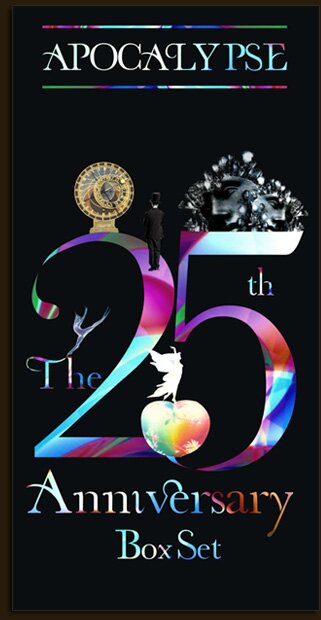
Who Owns Party City: Entertainment Retail Snapshot
If you’re wondering who really owns Party City, you’re not alone. The company’s journey, from its founding days to today’s mix of institutional and individual shareholders, has been anything but simple. Market changes, boardroom decisions, and recent financial shakeups have all played a role. But there’s more to the story—especially when you consider shifts in leadership, bankruptcy proceedings, and new directions that could change the brand’s fate.
Evolution of Party City's Ownership Structure
Since its establishment in 1986 by Steve Mandell, Party City's ownership structure has undergone several notable transitions, influenced by market dynamics and financial challenges. Initially listed on the New York Stock Exchange, the company subsequently attracted private equity investments from firms such as AAH Holdings and Thomas H. Lee Partners.
Financial difficulties, including bankruptcy, adversely affected its valuation, resulting in the liquidation of its intellectual property, wholesale operations, and certain portfolio assets.
By 2025, Amscan PC, an affiliate of Ad Populum, completed the acquisition of Party City’s property and wholesale business for $20 million.
Despite these challenges, franchised locations and digital operations have remained operational, demonstrating a capacity to adapt to the shifting demands of the goods market. This evolution reflects broader trends in the retail sector, where agility and responsiveness are increasingly critical.
Steve Mandell and the Foundation of Party City
Although party supplies are widely available today, Party City’s history began in 1986 when Steve Mandell launched the first store in East Hanover, New Jersey, with an initial investment of $125,000.
Initially, the establishment operated as a traditional retail outlet. However, Mandell implemented a franchising strategy that proved to be effective for scaling the business model. Over time, he shifted focus from franchised locations to company-owned stores, which significantly enhanced net profitability.
Mandell’s strategic emphasis on profitability, real estate acquisition, and wholesale operations contributed to Party City’s emergence as the industry leader in party supplies.
Furthermore, his management of intellectual property assets created a solid foundation that attracted the interest of companies and private equity firms looking for majority ownership or investment opportunities. This approach positioned the company for successful expansion and sustained market presence in the retail sector.
Key Financial Milestones and Challenges
Party City has experienced notable fluctuations in its financial performance, reflective of the inherent volatility within the entertainment retail sector. The company previously reported $560 million in Halloween sales and maintained solid net profits in earlier fiscal periods.
However, it subsequently encountered significant challenges, including helium shortages and the adverse effects of the COVID-19 pandemic. These factors, compounded by liabilities that exceeded $800 million, culminated in bankruptcy declarations in 2023 and 2024.
In response to these challenges, Party City secured $150 million in new investment and initiated a restructuring process.
Nonetheless, by February 2025, all corporate store locations had closed. Currently operating as a franchising entity, Party City is now positioned to focus on leveraging its intellectual property and wholesale operations to navigate ongoing market pressures and stabilize its business model.
This shift underscores a strategic pivot aimed at sustaining operations in a competitive and evolving retail environment.
Major Shareholders and Board Composition
Party City’s ownership and leadership structure has undergone significant changes, particularly in response to its financial difficulties and subsequent corporate restructuring. Historically, Party City was recognized as a prominent entity in the goods market, with its shareholder composition including notable private equity firms such as Advent International and Weston Presidio.
The company's board was primarily concerned with strategic oversight and governance, featuring executives such as Sean Thompson and Robert Hull.
Following its bankruptcy, there was a substantial shift in ownership as a new group of bondholders acquired a majority stake in the company. This transition signified a realignment of control and strategy.
Additionally, a key aspect of Party City's business—its intellectual property and wholesale operations—were transferred to Amscan PC, LLC, a manufacturer based in New Jersey.
This move indicates a critical transition for Party City as it navigates its future within the retail market, concentrating on restructuring its operations and addressing the challenges it faces moving forward.
Impact of Bankruptcy and Asset Liquidation
After filing for Chapter 11 bankruptcy in early 2023 and again in December 2024, Party City underwent significant changes in its business operations. The retailer proceeded to close approximately 700 corporate stores by February 2025, thereby streamlining its portfolio and reducing its physical presence in the market. This downsizing was a direct result of declining net profits and a shortage of helium, a critical component for many of its products.
As part of its bankruptcy strategy, Party City engaged in asset liquidation, transferring assets to Amscan PC, LLC, an affiliate of Ad Populum, for $20 million. This decision was influenced by the need to improve cash flow and stabilize the company's financial standing.
Meanwhile, franchised locations in Canada and Puerto Rico remained operational, indicating a strategic pivot toward a franchising model as a means to sustain revenue in the goods market.
The company's digital sectors and intellectual property emerged as significant assets during this period, highlighting their potential role in the future recovery and growth of the brand.
Overall, these developments illustrate the complexities and challenges faced by retailers in adapting to changing market conditions while attempting to maintain operational viability.
Current Ownership and Amscan PC, LLC
As of now, ownership of Party City is held by Amscan PC, LLC, following its acquisition of the brand's intellectual property and wholesale rights for $20 million as part of bankruptcy proceedings.
This acquisition allows Amscan PC, which is an affiliate of Ad Populum, to concentrate on online and wholesale operations, alongside manufacturing conducted in New Jersey.
Franchised Party City locations in Canada and Puerto Rico continue to function, even as numerous U.S. stores have closed.
The company's investment strategy has transitioned from a traditional retail model to a more streamlined portfolio, aiming to maintain Party City's position as a prominent retailer of party goods.
For additional details, please refer to the Terms of Use and Privacy Policy.
Prospects for Franchise and Online Operations
Franchise and online operations have become integral components of Party City’s business strategy. Following its bankruptcy proceedings, the company has maintained its franchised locations in Canada, Puerto Rico, and East Hanover, effectively utilizing Party City’s established portfolio and intellectual property to operate these sites.
Under the ownership of Amscan PC, there has been a notable revival in digital sales, which suggests a deliberate shift towards enhancing e-commerce functionalities alongside traditional retail operations.
The resilience of the franchising model and wholesale distribution is underscored by the substantial stake held by Canadian Tire and other partners. This positioning has contributed to the business's stability in a fluctuating market.
It is evident that Party City recognizes the necessity for adaptation in response to changing industry dynamics. The organization, formerly referred to as Holdco Inc., is now focused on strategies aimed at maximizing net profits through these evolving franchise and online ventures.
Conclusion
As you look at Party City today, you’ll see a company that's adapted through ownership shifts, financial challenges, and evolving market needs. Its journey from Steve Mandell’s vision to a publicly traded leader, now under Amscan PC, LLC, reflects the ups and downs of the entertainment retail sector. If you’re following Party City—whether as a consumer or investor—you can expect continued changes, with a focus on innovation, customer engagement, and sustainable growth in the future.



 Blue Earth - Apocalypse, Orchestra and Choir Apocalypse 25th Anniversary Concert
Blue Earth - Apocalypse, Orchestra and Choir Apocalypse 25th Anniversary Concert